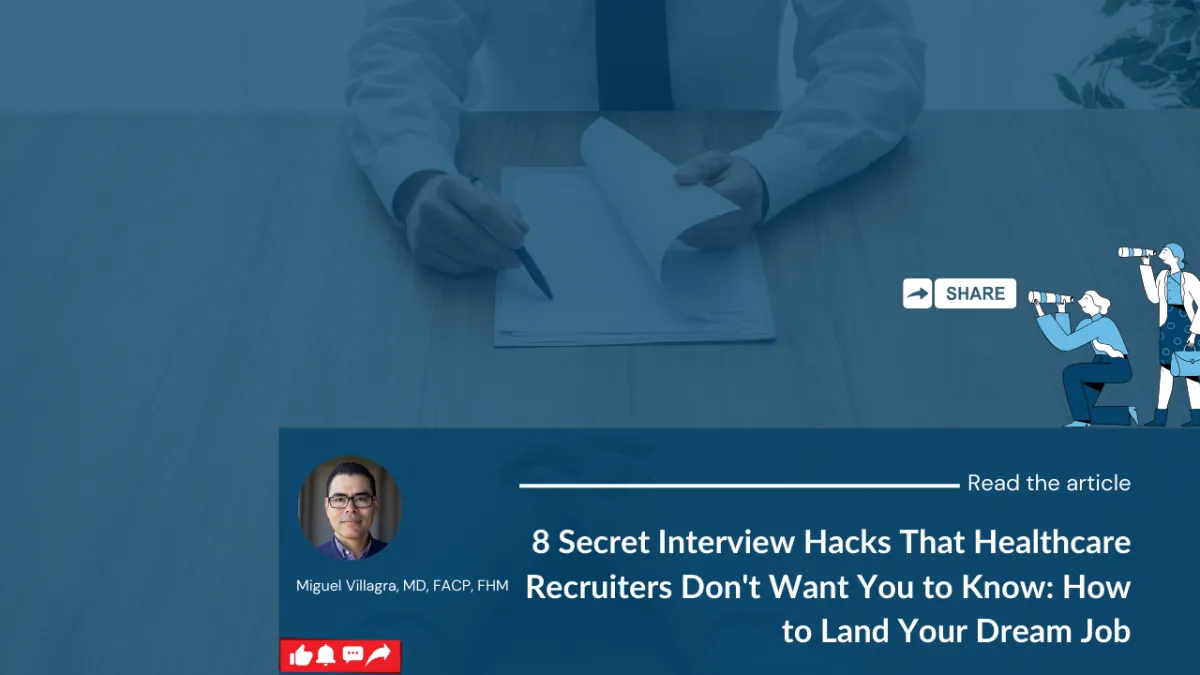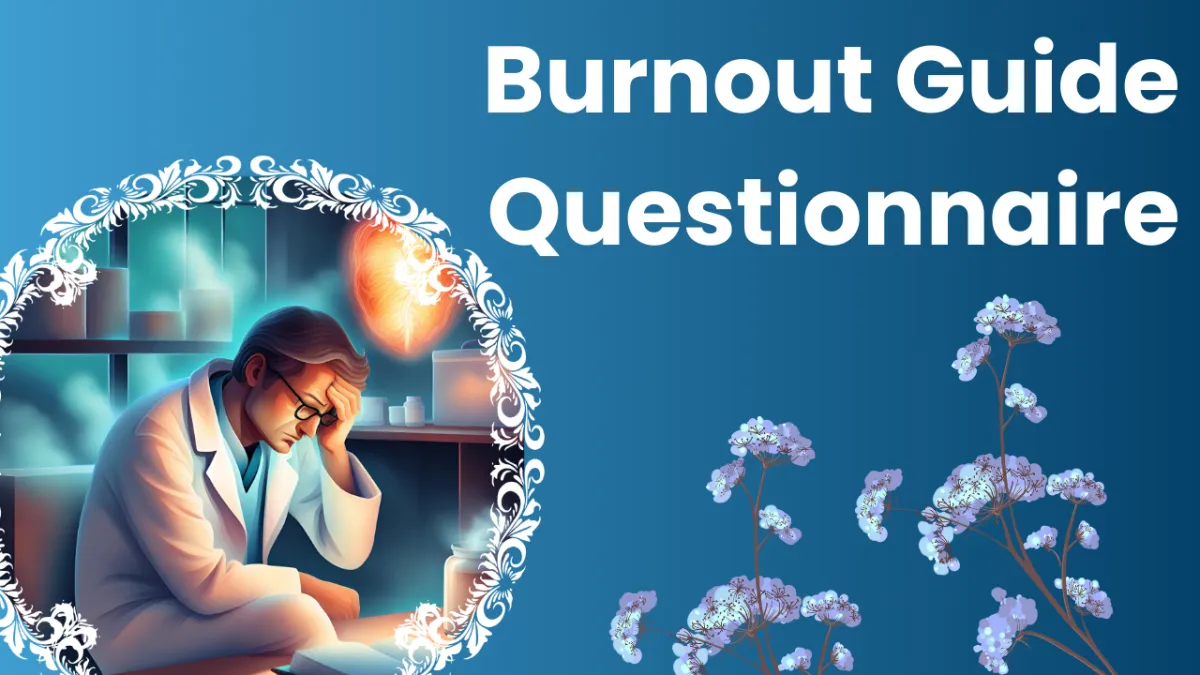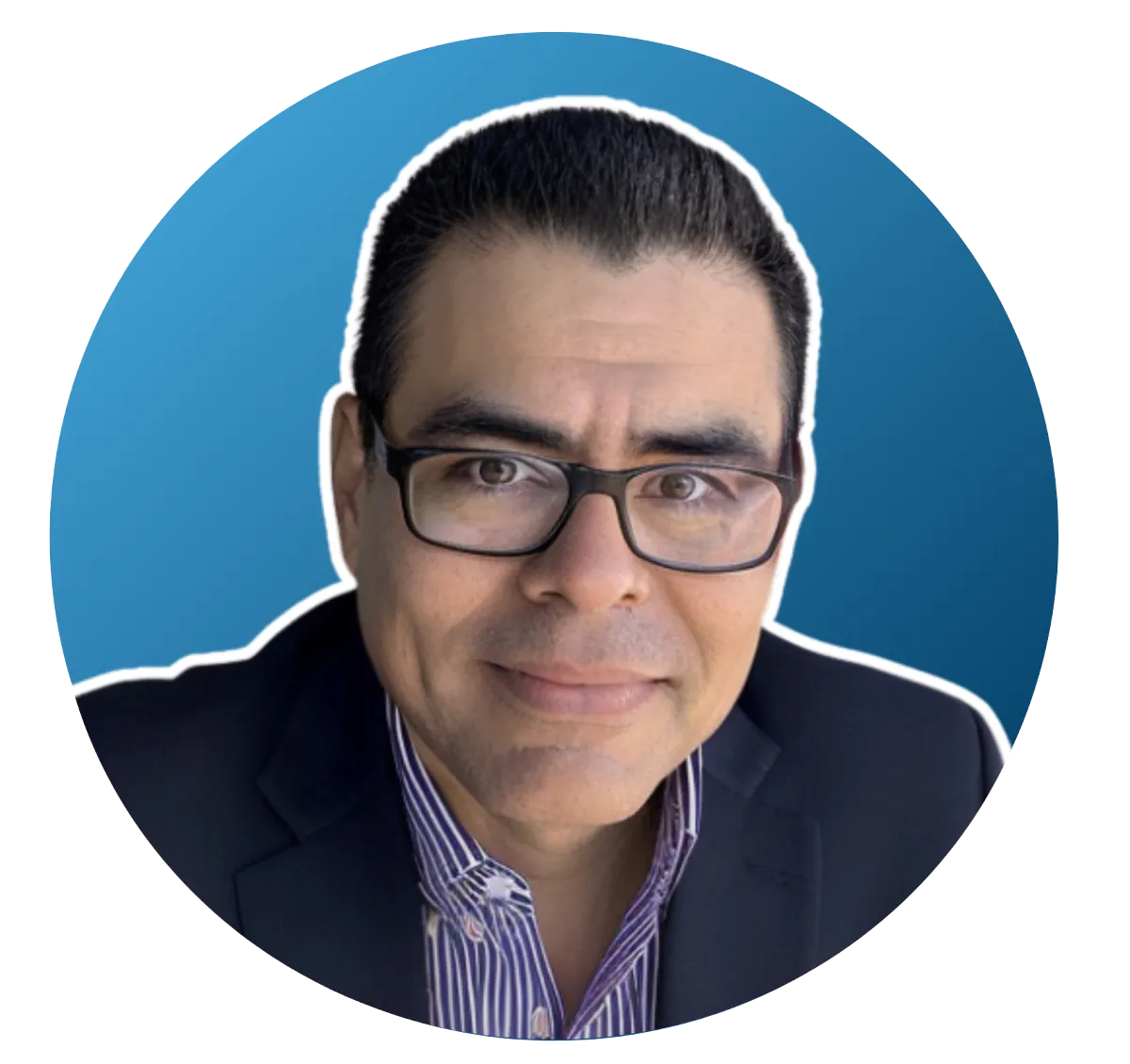
Are you ready to transform healthcare and make a lasting impact?
Join the Healthcare Innovation An Introduction for Physicians Online Course!
INSTRUCTORS:
Miguel Villagra, MD, FACP, FHM
Uli K. Chettipally, MD, MPH
BLOG POST
BLOG POST

8 Secret Interview Hacks That Healthcare Recruiters Don't Want You to Know: How to Land Your Dream Job
Interviews are the gateway to advancing your healthcare career. Yet, the process can feel like an uphill climb—balancing the need to demonstrate technical prowess, interpersonal skills, and your ability to thrive under pressure. Whether you’re a seasoned professional seeking growth or a newcomer eager to land your first position, excelling in interviews is key to unlocking your potential.
But here’s the good news: a successful interview isn’t about luck. It’s about preparation, strategy, and showcasing your authentic self. In this detailed guide, we’ll explore proven hacks to help you approach healthcare interviews with confidence, clarity, and poise.

1. Research the Organization Inside and Out
Be the Candidate Who Knows Their Stuff
One of the most effective ways to impress your interviewers is to show that you’ve done your homework. Understanding the organization’s mission, culture, and priorities demonstrates genuine interest and helps you tailor your responses to their specific needs.
What to Research:
Mission, Vision, and Values: Does the organization prioritize underserved populations, innovation, or interdisciplinary collaboration? Highlight how your values align.
Patient Demographics: Knowing the population they serve allows you to anticipate challenges and showcase relevant skills, such as cultural competency or language proficiency.
Recent Initiatives and News: Mentioning a new program, accreditation, or partnership reflects your proactive nature.

Pro Tip:
Search their website, read press releases, and explore social media channels for the latest updates. Sites like Glassdoor and Indeed often provide insider perspectives on workplace culture. I suggest use Perplexity AI as strong supportive tool on your search.
Additionally, follow the organization's social media accounts and set up Google Alerts for their name to stay informed about recent developments and industry trends that could be relevant to your interview.
Example in Action:
During her interview, a nurse practitioner candidate referenced the hospital’s recent launch of a telehealth program, sharing her own experience implementing telehealth solutions in her previous role. This specific connection demonstrated her preparation and strategic alignment with the organization’s goals.
2. Anticipate and Master Behavioral and Clinical Questions
Showcase Your Expertise and Problem-Solving Skills
Healthcare interviews often combine behavioral and clinical questions to assess both your soft skills and technical knowledge. Preparation is essential to ace both types of inquiries.
Behavioral Questions
These focus on how you’ve handled real-world scenarios, such as teamwork, conflict, or patient care.
Common Examples:
“Describe a time when you had to deliver bad news to a patient or family member.”
“How do you handle disagreements within a healthcare team?”
“Tell me about a time when you managed a challenging workload.”

Use the STAR Method to Structure Responses:
Situation: Describe the context or challenge.
Task: Explain your role in the situation.
Action: Detail the steps you took to address the issue.
Result: Share the outcome, highlighting positive results or lessons learned.
Remember: while the STAR method provides structure, your responses should still flow naturally. Keep examples concise yet detailed enough to demonstrate your competence and decision-making abilities. This framework helps ensure you don't miss crucial elements of your story while maintaining engagement with your interviewer.
Clinical Questions
Expect case-based or specialty-specific scenarios designed to test your problem-solving and clinical judgment.
How to Prepare:
Stay updated on best practices, guidelines, and trends in your field.
Review recent cases or challenging scenarios from your experience.
Be ready to think critically, demonstrating your reasoning process as well as your final answer.
When preparing for clinical questions, consider creating flashcards with common scenarios and best practices in your specialty. This not only reinforces your knowledge but also helps you articulate your thought process more clearly during the interview. Remember that interviewers are often more interested in understanding your clinical reasoning than hearing a perfect textbook answer.
Example:
A physician might be asked how they’d approach a patient presenting with atypical chest pain. A well-rounded answer would include a differential diagnosis, initial tests, and patient education, all delivered with empathy.
3. Highlight What Makes You Stand Out
Your Unique Strengths Are Your Superpower
Your resume earned you the interview, but now it’s time to bring your story to life. What makes you the ideal candidate? What value can you bring to this role?

Consider creating a "unique value proposition" statement that succinctly captures what sets you apart. This could include specialized certifications, multilingual abilities, or experience with cutting-edge healthcare technologies. Remember, your distinctive qualities should align with the organization's needs while demonstrating your potential for meaningful contribution.
Key Strengths to Highlight:
Teamwork and Collaboration: Healthcare is collaborative by nature. Share examples of interdisciplinary teamwork that achieved measurable outcomes.
Patient Advocacy: Showcase times when you went the extra mile for patients, ensuring they felt heard and cared for.
Leadership and Initiative: Highlight leadership roles, quality improvement projects, or mentoring experiences that demonstrate your proactive nature.
Additionally, showcase your Problem-Solving Skills: Demonstrate instances where you identified systemic issues and implemented effective solutions, showing both analytical thinking and practical execution abilities.

Quantify Your Achievements:
Numbers make your accomplishments more compelling. Instead of saying, “I improved patient education,” try:
“I developed a patient education program that improved medication adherence rates by 30% within six months.”
“Spearheaded a quality improvement project that reduced post-op infection rates by 15%.”
Consider creating a "success stories" document that highlights specific instances where your unique contributions made a measurable difference. For example, document cases where you implemented new protocols that enhanced patient outcomes or situations where your specialized skills helped resolve complex clinical challenges. This compilation serves as powerful evidence during interviews, especially when discussing your potential impact in the new role.
Pro Tip:
Weave these examples naturally into your responses. Let your accomplishments tell a story of impact and dedication.
4. Prepare Thoughtful Questions to Ask
Show Interest and Ensure Fit
Interviews are a two-way street. Thoughtful questions not only convey your interest but also help you assess whether the role aligns with your career goals.
Smart Questions to Ask:
About the Role: “What are the most immediate priorities for this position?”
About the Team: “Can you describe the team’s dynamic and how collaboration typically works here?”
About Growth Opportunities: “What opportunities for professional development or advancement are available?”
About Culture and Work-Life Balance: "How does the organization support employee wellness and maintain work-life balance?"
About Future Direction: "What are the organization's key strategic goals for the next few years?"
Pro Tip:
Personalize your questions based on your research. If the organization recently launched a new initiative, ask about its impact and future goals.
Additionally, consider asking about specific technologies or systems used in the department, as this shows technical awareness and helps you prepare for the role. Remember that your questions should demonstrate both your knowledge and your genuine interest in becoming a valuable team member.
5. Create an Impressive Portfolio
Stand Out with Tangible Evidence of Excellence
A polished portfolio can set you apart, providing concrete examples of your skills and accomplishments.

What to Include:
Certifications and Licenses: Highlight relevant credentials like ACLS, PALS, or specialty-specific certifications.
Quality Improvement Projects: Include summaries or visuals showcasing your role and results.
Case Studies: Provide de-identified examples of challenging cases, detailing how you addressed them effectively.
Pro Tip:
Present your portfolio in a professional, easy-to-navigate format. Consider digital options, such as a PDF portfolio on a tablet, to demonstrate tech-savviness. I suggest TEAL to get your resume organize and Napkin to create amazing images from your resume.
Another valuable addition to your portfolio could be letters of recommendation or testimonials from colleagues, patients (with appropriate privacy measures), or supervisors that highlight your clinical expertise and interpersonal skills. Consider including evidence of any research publications, presentations, or community outreach initiatives that demonstrate your commitment to advancing healthcare.
6. Build Confidence Through Practice
Rehearse Until You Shine
Mock interviews are a powerful way to refine your responses, tone, and body language.
How to Practice:
Role-play with a mentor or colleague who can offer constructive feedback.
Record yourself answering questions to identify areas for improvement.
Practice speaking clearly, maintaining eye contact, and controlling nervous habits like fidgeting.
Pro Tip:
Treat every practice session as a real interview. This mindset shift will prepare you to perform under pressure.
7. Perfect the Details: Dress, Etiquette, and Punctuality
Polish Your First Impression
Professionalism begins long before you answer your first question.

Checklist for Success:
Attire: Choose conservative, professional clothing suitable for the role.
Punctuality: Arrive 10-15 minutes early.
Extras: Bring multiple copies of your resume and portfolio.
Follow-Up: Send a personalized thank-you note within 24 hours, expressing gratitude and reaffirming your interest.
8. Embrace Confidence, Professionalism, and Empathy
Let Your Authentic Self Shine
Ultimately, a successful interview isn’t just about what you say—it’s about how you present yourself. Confidence, warmth, and professionalism leave a lasting impression.
Mindset Tips:
Breathe deeply before your interview to center yourself.
Focus on the value you bring to the organization.
Approach the interview as a conversation, not an interrogation.
Conclusion: Your Dream Job is Within Reach
With preparation, strategy, and authenticity, you can transform even the most intimidating healthcare interview into an opportunity to showcase your strengths. By understanding the organization, mastering your responses, and presenting yourself as a confident, compassionate professional, you’ll stand out as the ideal candidate.
Take the Next Step
Ready to excel in your next interview? Download our free “Healthcare Interview Prep Checklist” to ensure you’re fully prepared. For personalized guidance, book a free coaching session and let’s make your dream job a reality.

Download the Checklist | Schedule Your Coaching Session
Your dream role is waiting—let’s help you claim it.
Healthcare Interview Preparation Checklist
Use this comprehensive checklist to track your interview preparation progress.
Pro Tips:
• Practice deep breathing exercises before the interview
• Review specialty-specific clinical questions
• Prepare your "unique value proposition"
• Test any virtual meeting technology in advance

8 Secret Interview Hacks That Healthcare Recruiters Don't Want You to Know: How to Land Your Dream Job
Interviews are the gateway to advancing your healthcare career. Yet, the process can feel like an uphill climb—balancing the need to demonstrate technical prowess, interpersonal skills, and your ability to thrive under pressure. Whether you’re a seasoned professional seeking growth or a newcomer eager to land your first position, excelling in interviews is key to unlocking your potential.
But here’s the good news: a successful interview isn’t about luck. It’s about preparation, strategy, and showcasing your authentic self. In this detailed guide, we’ll explore proven hacks to help you approach healthcare interviews with confidence, clarity, and poise.

1. Research the Organization Inside and Out
Be the Candidate Who Knows Their Stuff
One of the most effective ways to impress your interviewers is to show that you’ve done your homework. Understanding the organization’s mission, culture, and priorities demonstrates genuine interest and helps you tailor your responses to their specific needs.
What to Research:
Mission, Vision, and Values: Does the organization prioritize underserved populations, innovation, or interdisciplinary collaboration? Highlight how your values align.
Patient Demographics: Knowing the population they serve allows you to anticipate challenges and showcase relevant skills, such as cultural competency or language proficiency.
Recent Initiatives and News: Mentioning a new program, accreditation, or partnership reflects your proactive nature.

Pro Tip:
Search their website, read press releases, and explore social media channels for the latest updates. Sites like Glassdoor and Indeed often provide insider perspectives on workplace culture. I suggest use Perplexity AI as strong supportive tool on your search.
Additionally, follow the organization's social media accounts and set up Google Alerts for their name to stay informed about recent developments and industry trends that could be relevant to your interview.
Example in Action:
During her interview, a nurse practitioner candidate referenced the hospital’s recent launch of a telehealth program, sharing her own experience implementing telehealth solutions in her previous role. This specific connection demonstrated her preparation and strategic alignment with the organization’s goals.
2. Anticipate and Master Behavioral and Clinical Questions
Showcase Your Expertise and Problem-Solving Skills
Healthcare interviews often combine behavioral and clinical questions to assess both your soft skills and technical knowledge. Preparation is essential to ace both types of inquiries.
Behavioral Questions
These focus on how you’ve handled real-world scenarios, such as teamwork, conflict, or patient care.
Common Examples:
“Describe a time when you had to deliver bad news to a patient or family member.”
“How do you handle disagreements within a healthcare team?”
“Tell me about a time when you managed a challenging workload.”

Use the STAR Method to Structure Responses:
Situation: Describe the context or challenge.
Task: Explain your role in the situation.
Action: Detail the steps you took to address the issue.
Result: Share the outcome, highlighting positive results or lessons learned.
Remember: while the STAR method provides structure, your responses should still flow naturally. Keep examples concise yet detailed enough to demonstrate your competence and decision-making abilities. This framework helps ensure you don't miss crucial elements of your story while maintaining engagement with your interviewer.
Clinical Questions
Expect case-based or specialty-specific scenarios designed to test your problem-solving and clinical judgment.
How to Prepare:
Stay updated on best practices, guidelines, and trends in your field.
Review recent cases or challenging scenarios from your experience.
Be ready to think critically, demonstrating your reasoning process as well as your final answer.
When preparing for clinical questions, consider creating flashcards with common scenarios and best practices in your specialty. This not only reinforces your knowledge but also helps you articulate your thought process more clearly during the interview. Remember that interviewers are often more interested in understanding your clinical reasoning than hearing a perfect textbook answer.
Example:
A physician might be asked how they’d approach a patient presenting with atypical chest pain. A well-rounded answer would include a differential diagnosis, initial tests, and patient education, all delivered with empathy.
3. Highlight What Makes You Stand Out
Your Unique Strengths Are Your Superpower
Your resume earned you the interview, but now it’s time to bring your story to life. What makes you the ideal candidate? What value can you bring to this role?

Consider creating a "unique value proposition" statement that succinctly captures what sets you apart. This could include specialized certifications, multilingual abilities, or experience with cutting-edge healthcare technologies. Remember, your distinctive qualities should align with the organization's needs while demonstrating your potential for meaningful contribution.
Key Strengths to Highlight:
Teamwork and Collaboration: Healthcare is collaborative by nature. Share examples of interdisciplinary teamwork that achieved measurable outcomes.
Patient Advocacy: Showcase times when you went the extra mile for patients, ensuring they felt heard and cared for.
Leadership and Initiative: Highlight leadership roles, quality improvement projects, or mentoring experiences that demonstrate your proactive nature.
Additionally, showcase your Problem-Solving Skills: Demonstrate instances where you identified systemic issues and implemented effective solutions, showing both analytical thinking and practical execution abilities.

Quantify Your Achievements:
Numbers make your accomplishments more compelling. Instead of saying, “I improved patient education,” try:
“I developed a patient education program that improved medication adherence rates by 30% within six months.”
“Spearheaded a quality improvement project that reduced post-op infection rates by 15%.”
Consider creating a "success stories" document that highlights specific instances where your unique contributions made a measurable difference. For example, document cases where you implemented new protocols that enhanced patient outcomes or situations where your specialized skills helped resolve complex clinical challenges. This compilation serves as powerful evidence during interviews, especially when discussing your potential impact in the new role.
Pro Tip:
Weave these examples naturally into your responses. Let your accomplishments tell a story of impact and dedication.
4. Prepare Thoughtful Questions to Ask
Show Interest and Ensure Fit
Interviews are a two-way street. Thoughtful questions not only convey your interest but also help you assess whether the role aligns with your career goals.
Smart Questions to Ask:
About the Role: “What are the most immediate priorities for this position?”
About the Team: “Can you describe the team’s dynamic and how collaboration typically works here?”
About Growth Opportunities: “What opportunities for professional development or advancement are available?”
About Culture and Work-Life Balance: "How does the organization support employee wellness and maintain work-life balance?"
About Future Direction: "What are the organization's key strategic goals for the next few years?"
Pro Tip:
Personalize your questions based on your research. If the organization recently launched a new initiative, ask about its impact and future goals.
Additionally, consider asking about specific technologies or systems used in the department, as this shows technical awareness and helps you prepare for the role. Remember that your questions should demonstrate both your knowledge and your genuine interest in becoming a valuable team member.
5. Create an Impressive Portfolio
Stand Out with Tangible Evidence of Excellence
A polished portfolio can set you apart, providing concrete examples of your skills and accomplishments.

What to Include:
Certifications and Licenses: Highlight relevant credentials like ACLS, PALS, or specialty-specific certifications.
Quality Improvement Projects: Include summaries or visuals showcasing your role and results.
Case Studies: Provide de-identified examples of challenging cases, detailing how you addressed them effectively.
Pro Tip:
Present your portfolio in a professional, easy-to-navigate format. Consider digital options, such as a PDF portfolio on a tablet, to demonstrate tech-savviness. I suggest TEAL to get your resume organize and Napkin to create amazing images from your resume.
Another valuable addition to your portfolio could be letters of recommendation or testimonials from colleagues, patients (with appropriate privacy measures), or supervisors that highlight your clinical expertise and interpersonal skills. Consider including evidence of any research publications, presentations, or community outreach initiatives that demonstrate your commitment to advancing healthcare.
6. Build Confidence Through Practice
Rehearse Until You Shine
Mock interviews are a powerful way to refine your responses, tone, and body language.
How to Practice:
Role-play with a mentor or colleague who can offer constructive feedback.
Record yourself answering questions to identify areas for improvement.
Practice speaking clearly, maintaining eye contact, and controlling nervous habits like fidgeting.
Pro Tip:
Treat every practice session as a real interview. This mindset shift will prepare you to perform under pressure.
7. Perfect the Details: Dress, Etiquette, and Punctuality
Polish Your First Impression
Professionalism begins long before you answer your first question.

Checklist for Success:
Attire: Choose conservative, professional clothing suitable for the role.
Punctuality: Arrive 10-15 minutes early.
Extras: Bring multiple copies of your resume and portfolio.
Follow-Up: Send a personalized thank-you note within 24 hours, expressing gratitude and reaffirming your interest.
8. Embrace Confidence, Professionalism, and Empathy
Let Your Authentic Self Shine
Ultimately, a successful interview isn’t just about what you say—it’s about how you present yourself. Confidence, warmth, and professionalism leave a lasting impression.
Mindset Tips:
Breathe deeply before your interview to center yourself.
Focus on the value you bring to the organization.
Approach the interview as a conversation, not an interrogation.
Conclusion: Your Dream Job is Within Reach
With preparation, strategy, and authenticity, you can transform even the most intimidating healthcare interview into an opportunity to showcase your strengths. By understanding the organization, mastering your responses, and presenting yourself as a confident, compassionate professional, you’ll stand out as the ideal candidate.
Take the Next Step
Ready to excel in your next interview? Download our free “Healthcare Interview Prep Checklist” to ensure you’re fully prepared. For personalized guidance, book a free coaching session and let’s make your dream job a reality.

Download the Checklist | Schedule Your Coaching Session
Your dream role is waiting—let’s help you claim it.
Healthcare Interview Preparation Checklist
Use this comprehensive checklist to track your interview preparation progress.
Pro Tips:
• Practice deep breathing exercises before the interview
• Review specialty-specific clinical questions
• Prepare your "unique value proposition"
• Test any virtual meeting technology in advance
Many physicians considered therapy, self-help resources and support groups before finding our coaching more effective due to its personalized, goal-oriented approach.
Join our innovative life coaching programs that integrate Positive Intelligence to build mental fitness, resilience and emotional intelligence.
TAKE PART IN OUR SURVEYS

Gain insights into your current MENTAL and EMOTIONAL STATE.

This survey aims to understand the current state of HAPPINESS and WELL-BEING among physicians and to gather INSIGHTS on effective strategies for fostering JOY in the medical profession.
TAKE PART IN OUR SURVEYS

Gain insights into your current MENTAL and EMOTIONAL STATE.

This survey aims to understand the current state of HAPPINESS and WELL-BEING among physicians and to gather INSIGHTS on effective strategies for fostering JOY in the medical profession.

Join our NEWSLETTER!
Stay in the loop with our latest updates, exclusive offers, and expert insights by joining our newsletter! Receive valuable content directly to your inbox and be the first to know about upcoming events and promotions. We never share your info to others. You can also opt out anytime.
You are granting Adoctorsjourney permission to send you occasional emails with updates, resources, and special offers. You can unsubscribe from these emails at any time by clicking the "unsubscribe" link at the bottom of any email we send you. We will not share your information with any third parties without your consent.
Join the Movement: Subscribe for Healthcare Innovation & Career Tips!
Physician Well-being & Resilience: Strategies for managing stress and burnout. Building emotional intelligence and mental fitness.
Positive Leadership for Physicians: Developing positive communication and conflict resolution skills. Leading with empathy and emotional intelligence.
Physician Career Transition or Pivot: Setting meaningful goals and achieving work-life integration. Navigating career challenges and transitions.
CLICK TO WATCH THE VIDEO...
Join the Movement: Subscribe for Healthcare Innovation & Career Tips!
Physician Well-being & Resilience: Strategies for managing stress and burnout. Building emotional intelligence and mental fitness.
Positive Leadership for Physicians: Developing positive communication and conflict resolution skills. Leading with empathy and emotional intelligence.
Physician Career Transition or Pivot: Setting meaningful goals and achieving work-life integration. Navigating career challenges and transitions.
CLICK TO WATCH THE VIDEO...
355 E Plumb Lane #1098, Reno, NV, 89502, USA
915-800-0690
Elevate Your Leadership and Career
Gain the tools and strategies needed to become a more effective and inspiring to our fellow physicians, entrepreneurs and other sectors. Follow us on social media, sign up for our newsletter and engage with our community to stay inspired, informed, and connected on your journey of transformation.
SUBSCRIBE TO OUR NEWSLETTER
You are granting Adoctorsjourney permission to send you occasional emails with updates, resources, and special offers. You can unsubscribe from these emails at any time by clicking the "unsubscribe" link at the bottom of any email we send you. We will not share your information with any third parties without your consent.
Elevate Your
Leadership and
Gain the tools and strategies needed to become a more effective and inspiring to our fellow physicians, entrepreneurs and other sectors. Follow us on social media, sign up for our newsletter and engage with our community to stay inspired, informed, and connected on your journey of transformation.
SUBSCRIBE TO OUR NEWSLETTER
You are granting Adoctorsjourney permission to send you occasional emails with updates, resources, and special offers. You can unsubscribe from these emails at any time by clicking the "unsubscribe" link at the bottom of any email we send you. We will not share your information with any third parties without your consent.
Copyright @ 2024 Adoctorsjourney, LLC
All Right Reserved.



